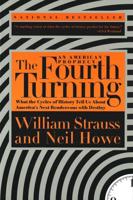Publisher's Synopsis
The Depression and the New Deal forced charities into a new relationship with public welfare. After opposing public 'relief' for a generation, charities embraced it in the 1930s as a means to save a crippled voluntary sector from collapse. Welfare was to be delivered by public institutions, which allowed charities to offer and promote specialised therapeutic services such as marriage counselling - a popular commodity in postwar America. But as Andrew Morris shows in this book, these new alignments were never entirely stable. In the 1950s, charities' ambiguous relationship with welfare drove them to aid in efforts to promote welfare reform by modelling new techniques for dealing with 'multiproblem families'. The War on Poverty, changes in federal social service policy, and the slow growth of voluntary fundraising in the late 1960s undermined the New Deal division of labour and offered charities the chance to deliver public services - the paradigm at the heart of debates on public funding of religious non-profits.










